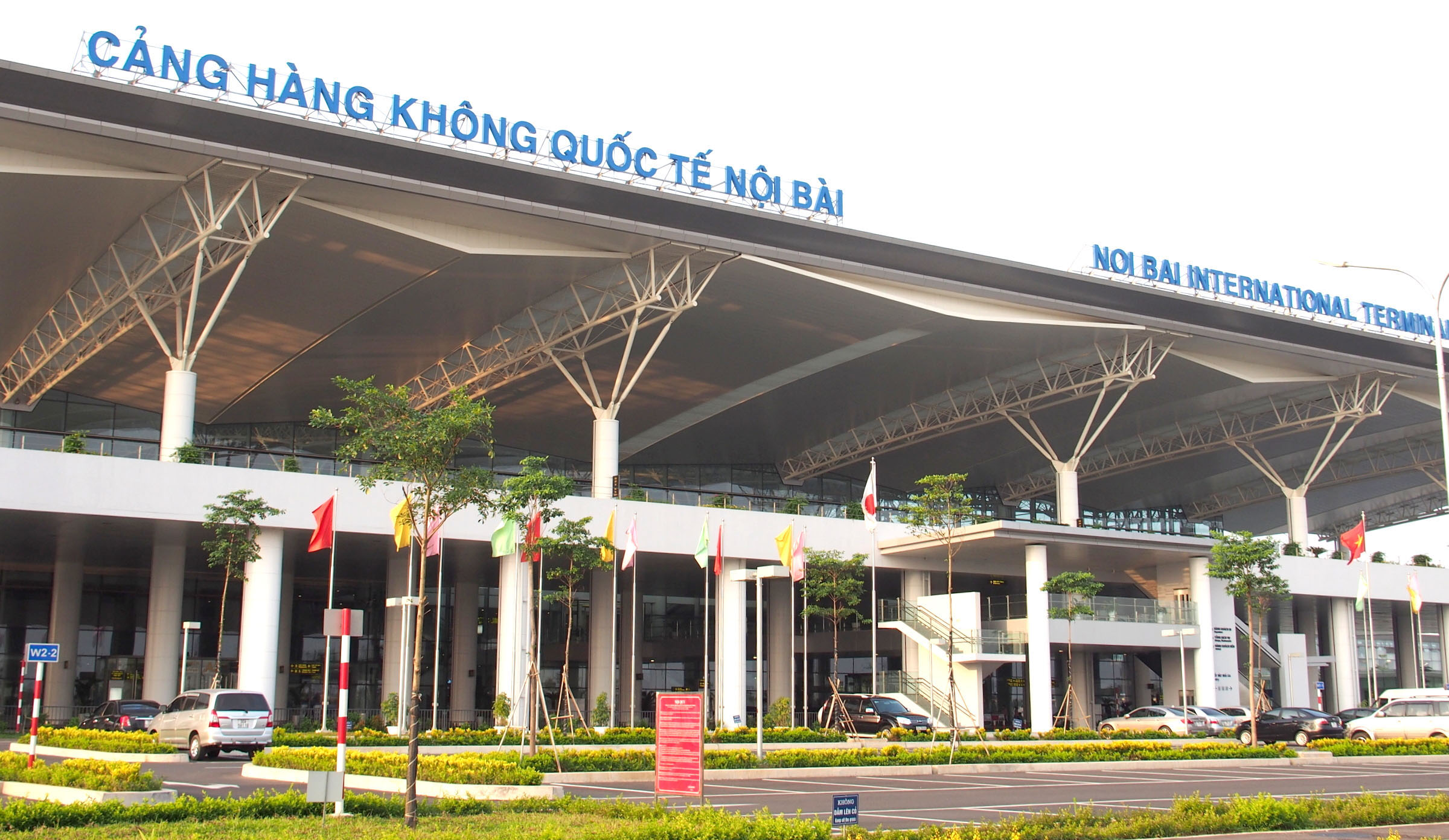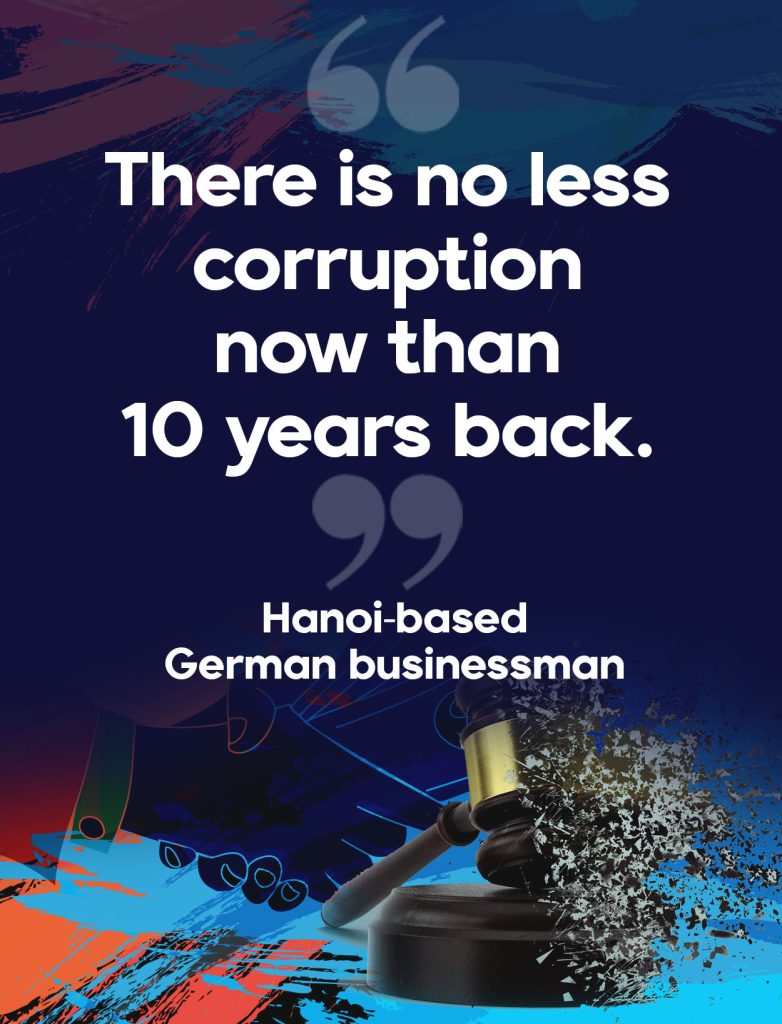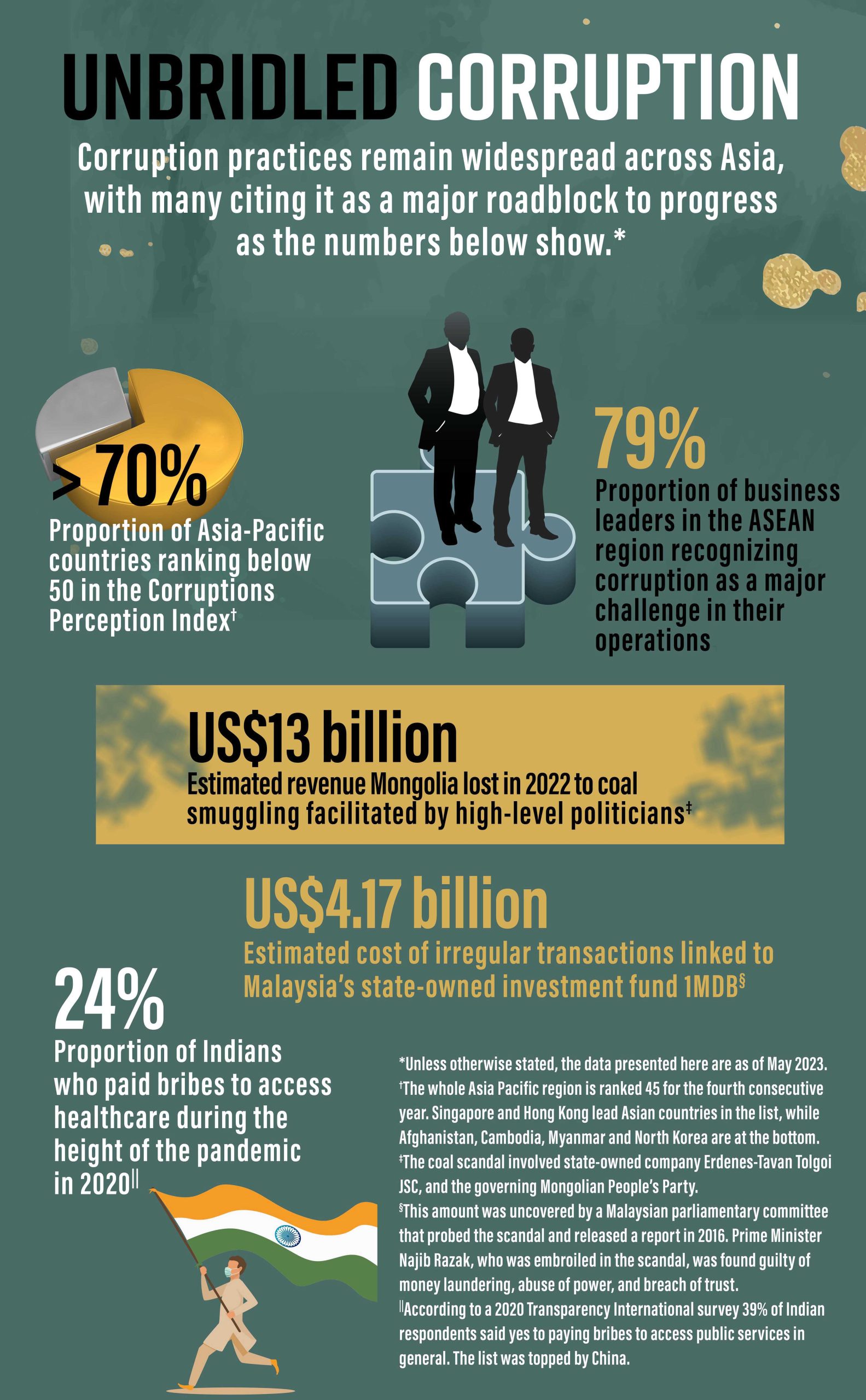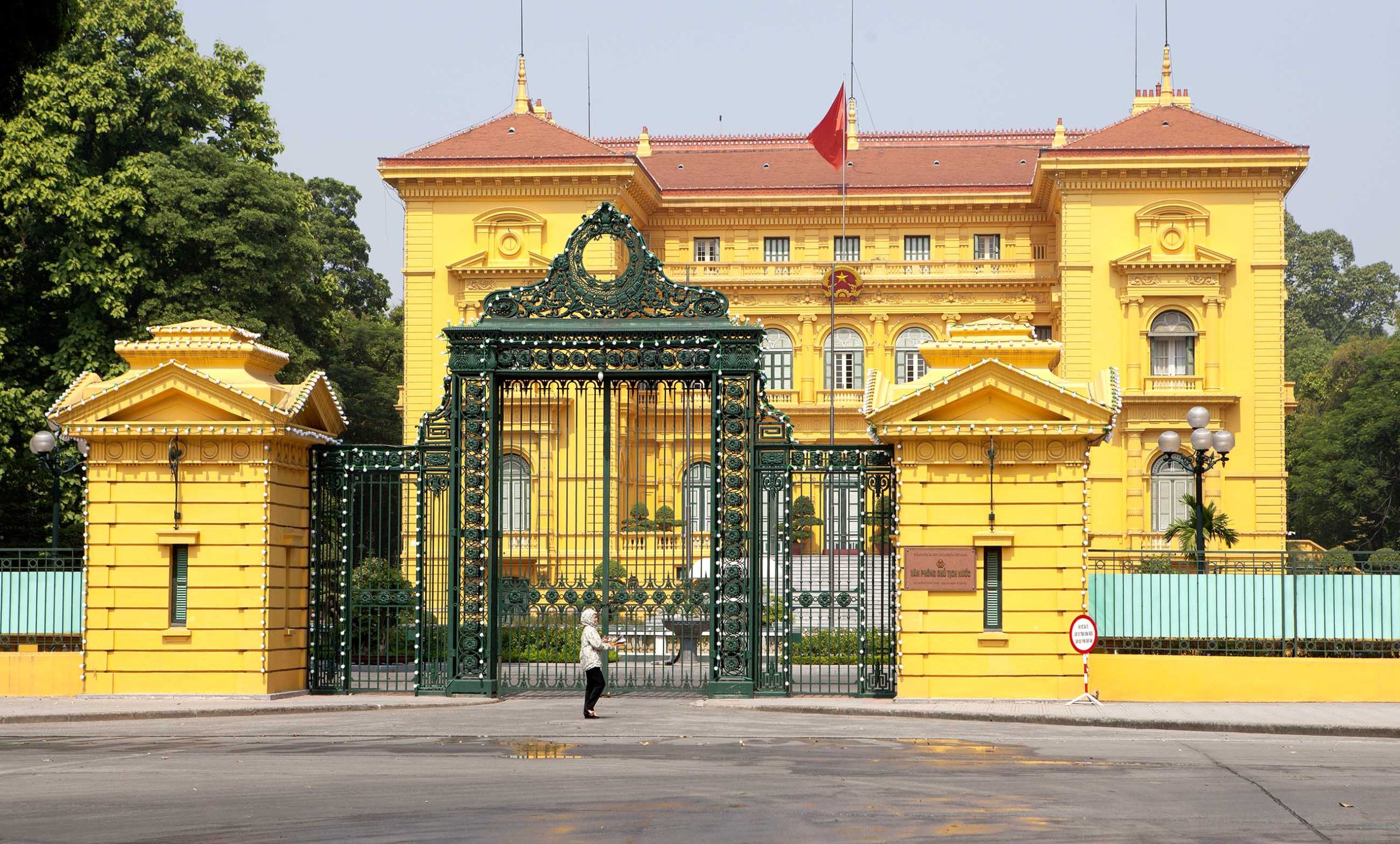|
Getting your Trinity Audio player ready...
|
E
arlier this year, Kuganpillai Subramaniam took to Facebook under the account Kugan Pillai to tag the Singapore Embassy in Vietnam and the Singapore Ministry of Foreign Affairs. In his post, the Singaporean, who had just returned home from Hanoi, alleged that an immigration officer at Noi Bai International Airport had demanded a bribe in exchange for allowing him to exit Vietnam.
“I was at Hanoi’s airport immigration departing to Singapore today when this immigration officer wrote ‘tips’ on my air ticket,” recounted Subramaniam in his post. “He was holding my passport and asking for it. I asked him for what but he just kept pointing to what he wrote.”

Subramaniam alleged that the immigration officer demanded a bribe of VND 200,000 (approximately US$10). He only had a VND 500,000 note (US$21), which Subramaniam said he gave to the officer; he did not receive any change back.
Albeit puzzled, he finally gave in so that he and his girlfriend could board the plane on time. “I feel that I was held hostage if I didn’t give the money,” Subramaniam said in his post, which included a picture of the word “tip” that the officer allegedly wrote on the tourist’s ticket.
As travelers’ tales go, Subramaniam’s experience is not that unique, as corrupt airport personnel in some countries do sometimes ask for “tips” in exchange for services they are already receiving salaries for. That it happened in Vietnam when the country was in the midst of yet another intensified corruption crackdown, however, caught the attention of many. For several observers, it was yet another proof that at the very least, petty corruption remains alive and well in Vietnam. In fact, comments on Subramaniam’s Facebook post – which was shared more than 10,000 within a few days after it was uploaded — indicated that it is a widespread problem in Vietnam.
At the time, high-ranking foreign ministry officials, including the Minister of Foreign Affairs and numerous Ambassadors, had been disciplined or even dismissed for taking bribes from Vietnamese citizens abroad who wanted to return to the country on “rescue flights” during the pandemic. In early January, the Deputy Prime Minister in charge of foreign affairs was also removed from the Politburo due to the scandal.
Weeks after Subramaniam uploaded his post on Facebook, President Nguyễn Xuân Phúc was even held accountable for COVID-related graft offenses committed by government figures including ministers and forced to resign. He is the first member of the four pillars of leadership – Communist Party general secretary, prime minister, president and chair of the national assembly – to be unseated, even though the role of a president is largely ceremonial.
A blaze of a campaign
Since Communist Party of Vietnam (CPV) Secretary General Nguyen Phu Trong launched his “furnace blazing” (đốt lò) anti-corruption campaign in 2013 with the aim of consolidating the Party’s legitimacy, hundreds of high-level officials had been swept up, with the police and military being among the major targets of sackings and arrests. The police are widely perceived as among the most corrupt sectors in the country.
Yet, despite such stringent measures and high-profile cases, corruption – petty and otherwise – apparently still thrives in different state agencies such as the immigration department and yes, the police.

This is even as Vietnam has improved its annual score on Transparency International’s Corruption Perception Index (CPI) in the past few years. In the latest CPI, Vietnam had a score of 42 (on a scale of 0 to 100, with 100 meaning “very clean”), and ranked 77 among 180 countries. The previous year it had a score of 39 and ranked 87.
Petty corruption in particular is believed to be pervasive and present in practically every nook and cranny of Vietnamese society. It is most visible among the traffic police, but people have become so accustomed to greasing palms of authorities and agents to quicken things at school, work, in hospitals, administrative offices, and everywhere else that demands for bribes are rarely reported. Since there are few independent media to report to, except for social-media channels where one might still face repercussions for speaking up or reporting truths, the practice persists.
Trần, a journalist in a Hanoi-based state-affiliated outlet, said that reporting on bribe – taking scandals is really risky, even though coverage of corruption is not always sensitive.
“Even if sufficient evidence is provided, if the bribe takers are related to somebody “important”, the reporting would be censored or deleted after being published”.
A few observers say unscrupulous authorities take advantage of the lack of knowledge about applicable rules among those they are dealing with. In some situations, meanwhile, the benefits for the one knowingly providing the grease go beyond enjoying an easier and shorter bureaucratic process.
A senior manager at an English center in Hanoi, for example, says that rent-seeking local authorities are not the only beneficiaries of the mass issuance of tourist visas for long– term, non–Vietnamese residents.
“Both employers and the teachers want to evade the high tax imposed on foreigners,” says the manager, who wants to be referred to only as Huyền.
She says that at her language center, most of their English foreign teachers are paid in cash because they are ineligible to open local bank accounts. And that, she says, is because “they are here on tourist visas.”
“Even when documents were submitted, they have not heard from authorities despite numerous emails and calls,” says Huyền, who adds that she has had to accompany the foreign teachers many times to ask for information through local authorities on what else they need to do. But she says that the usual suggestion is that they should just do tourist visas for the sake of convenience. Says Huyền: “Tourist visas would mean quicker and more money for local authorities.”
More politics, no justice?
Yet another reason why corruption persists in Vietnam is that few believe the government’s anti-corruption drive is aimed at ridding the country of such nefarious practices. In truth, it is widely perceived to be more politically motivated than justice-oriented. President Nguyễn Xuân Phúc’s forced resignation, for instance, has been seen as part of a political reshuffle.
Not a few observers have noted that the Party had previously been silent on Tô Lâm, the Minister of Public Security who had faced widespread public criticism for luxurious dining during his trip to attend the COP26 climate summit in Scotland in late 2022. A video of the minister and his entourage being served the Golden Tomahawk steak – which sells for up to US$2,000 – had gone viral in Vietnam, promoting questions on social media as to how government employees on modest official salaries could afford such extravagance.
A few months later, a noodle seller in Danang in central Vietnam who had made a video mocking the state official was arrested for supposedly spreading anti-state propaganda. That further convinced many that more than anything else, politics is the reason behind the state’s anti-corruption drive.

Authorities, of course, say otherwise. A 12 December 2022 Voice of Vietnam article even asserted that “the anti-corruption drive led by the Communist Party and supported by people has made progress and yielded initial encouraging results.”
It also pointed out, “During a recent meeting held in Hanoi, Party General Secretary Nguyen Phu Trong, who is also head of the Central Steering Committee for Corruption and Negative Phenomena Prevention and Control, said enhancing the fight has helped the Party to be stronger and the people to increase their trust in the regime. The General Secretary went on to refute slanderous allegations that this is an internal purge or an internal struggle among various factions of the Party. Though this is an arduous campaign, Trong also affirmed there is a ‘no-go area’ in combating corruption and the anti-corruption drive is an irreversible trend in Vietnam.”
In his speech at the National Congress on Anti-Corruption just last 10 May, Trọng highlighted the fight against corruption as “a breakthrough in the Party’s inspection and disciplinary work” since the 7th Party Congress in 2021. He noted, “The disciplinary inspection committees at all levels have [since the 7th party congress] disciplined over 490 party organizations and 35,000 party members who violated regulations, including nearly 1,300 party members who were disciplined for corruption and intentional wrongdoing.”
But some observers may not be easy to convince of the campaign’s supposed success. In an April 2022 piece that was meant to be an advisory to businesses interested in Vietnam, the Economist Intelligence Unit called corruption in the country “endemic.” It said as well, “The pervasiveness of the problem means that sweeping institutional reform would be needed to bring about substantial change. Unfortunately, by the same turn, any major internal overhaul of government systems would risk exposing vast corruption that might undermine the party’s legitimacy in the eyes of the public, as well as alienating the security forces and civil service.”
“With the CPV also unwilling to allow external checks by a free press,” it added, “the prospects of a significant decline in corruption in 2022-26 are slim. Businesses in particular should assume no change in the risk of attempted coercion into these illegal practices.”
For his part, a German businessman who has been working in Hanoi since 2012 tells ADC that he has perceived little impact of the ‘furnace-blazing’ campaign on his direct work with local authorities, who he says have always sought ways to take bribes.
“There is no less corruption now than 10 years back,” the business who declines to be named says.

As for Subramaniam, the Singaporean visitor who was forced to “tip” an immigration officer in a Hanoi airport, Vietnamese authorities responded to his viral Facebook post by launching an investigation into the matter and assuring the public that appropriate action would be taken if the allegations were found to be true. In an interview with the BBC in Vietnamese a few days after the incident, Subramaniam stated that he had received a formal apology from the Vietnamese Immigration Department via email, as well as a request that he file officially for a refund.
According to Vietnamese state media reports, the immigration officer Subramaniam encountered was suspended. There has not been any further update on the case.◉



















